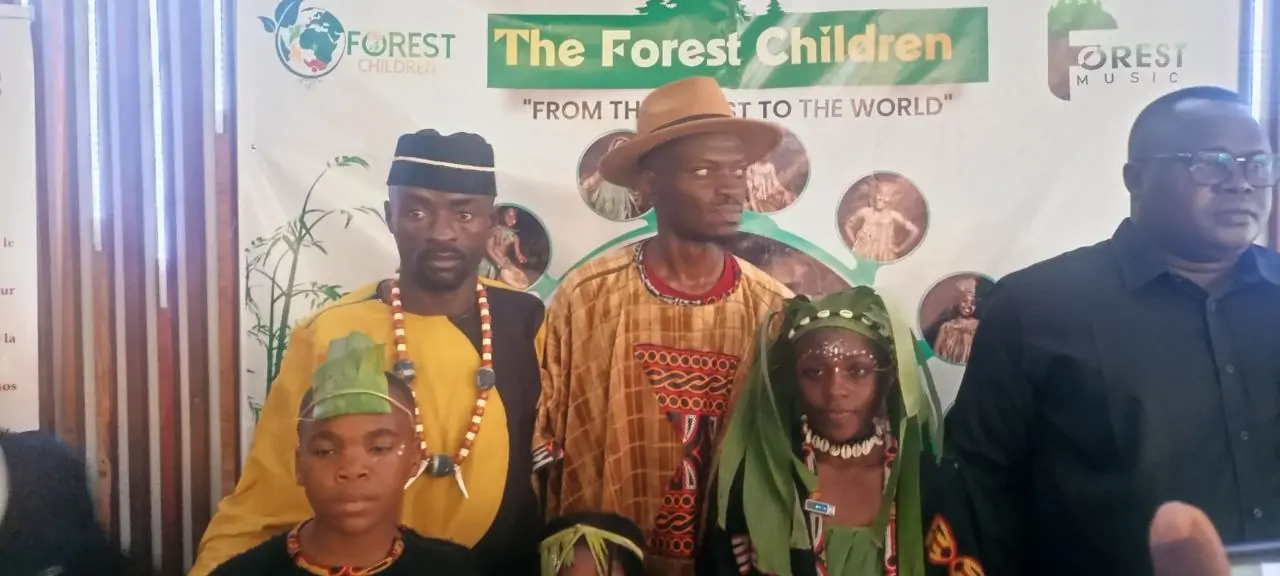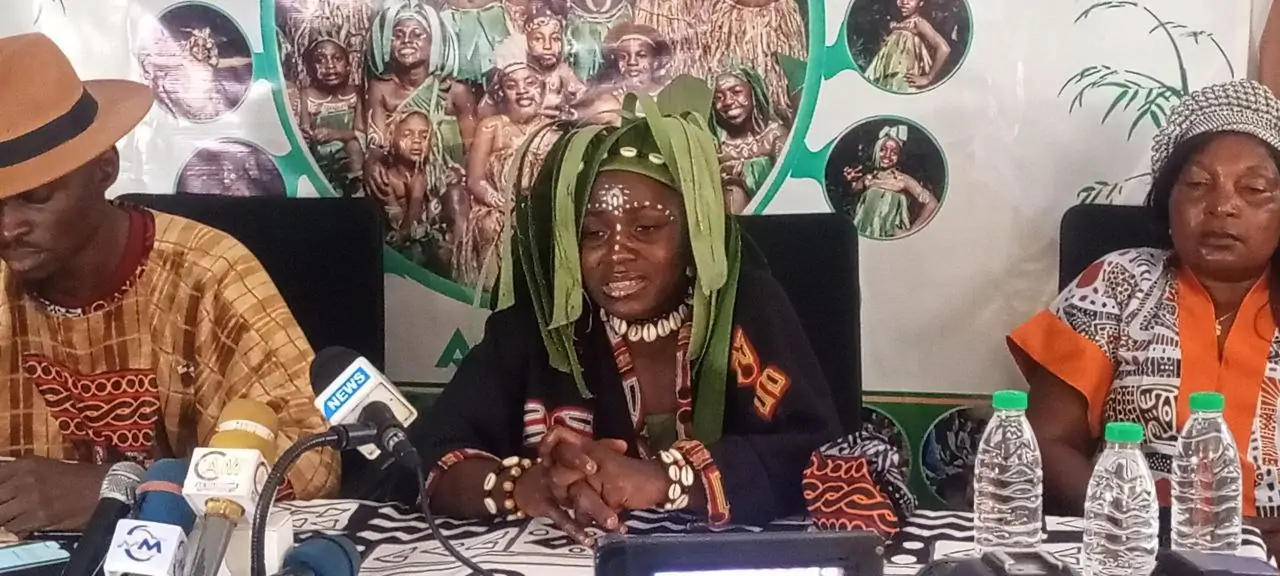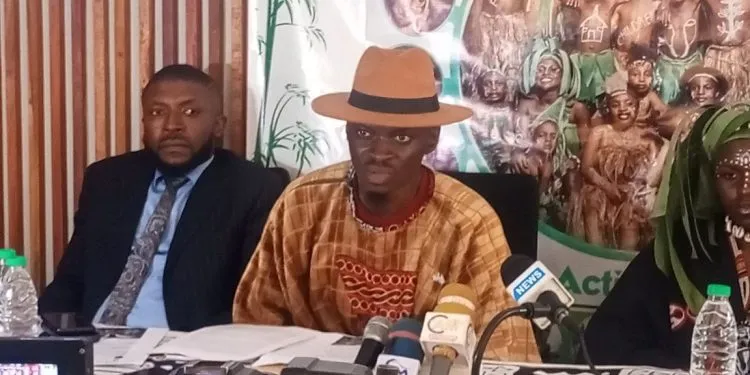16-year-old Jato Sonita, lead singer of the Forest Children, a musical group in Cameroon’s Northwest Region, was a victim of sexual abuse. She and her manager, Bayong Emmanuel Che said in a press conference that Sonita was raped by unidentified gunmen in 2021. The abuse was unreported until August 28, 2024, and even when it became public knowledge, no legal action has been taken.
Jato, her music band and her family said they concealed the abuse for more than three years, living with it quietly because she did not want to be ridiculed or have it harm her musical career. She said she went swimming with her friends and that armed men stormed and abused them. Jato said in a press conference that she was pulled and raped by two armed guys. It resulted in a pregnancy, and the child is two years old.
She remained silent.
She came home ashamed and afraid, unable to inform her parents. This is just one of the numerous unreported rape instances in Cameroon. Rape victims in Cameroon do not feel secure coming forward, which is a long-standing issue. Either no one will believe them, or people will apply preconceptions to them. Silence becomes the best option.
According to the Centre for Human Rights and Democracy in Africa (CHRDA), it receives information on at least one rape case daily, not to mention the many others that go unreported.
“The phenomenon has become so rampant that women now live in constant fear for themselves and their children.”
These abuses take place in homes, bushes, and workplaces, among others. The perpetrators are sometimes family members, bosses, and intimate partners, making it difficult for the abused to come out.
“The fear of sexual assault or rape has now become a part of every woman’s life. In a plethora of ways, this constricts and restricts females’ mobility and manner of living.” CHRDA added.

In 2023 alone, the UNFPA recorded 2386 gender-based violence in the North West, South West, and Far North regions of Cameroon. Of that number, sexual violence was at 15.5%, which comprises rape at 9.1% and sexual assault at 6.5%. The report said 69.5% of women were abused by intimate partners. Even 4.3% of children were sexually abused.
It added that 97.1% of the incidents reported were females, 17.9% were children below 18 years old, and 82.2% were adults 18 years and older.
In the two Anglophone regions where the war is ongoing, the abuses have increased tremendously, with women being the majority victims.
Human Rights Watch documented an attack by Cameroonian soldiers on March 1, 2020, in Ebam in the Southwest region, in which it said soldiers raped at least 20 women, including four with disabilities.”
In this case, it becomes a challenge for the victims to even seek justice.
In the Far North Region, where the war against the Boko Haram Insurgency is ongoing, the abuses remain the same. The Cameroon Human Rights Commission said violence against women is one of the most widespread and devastating human rights violations, noting that this type of violation remains among the most underreported due to impunity, silence, stigmatisation, and shame.
“The Commission notes that in Cameroon, there are 3,403 cases of women and girls who are victims of gender-based violence (sexual assault, early marriage, psychological violence, neglect, etc.) brought before the courts in the Far North and North Regions.”
The figures presented by the Nkafu Policy Institute show dire and more compounded situations of rape cases in English Cameroon where women have become vulnerable to rape. In 2019, it recorded 1,065 cases of conflict-related sexual violence, of which 289 involved rape or sexual assault.
A study on sexual and reproductive health conducted in the Northwest region in 2023 indicated that the conflict increased adolescent and youth vulnerability to sexual violence and transactional sex, having effects such as “unplanned pregnancies, sexually transmitted infections, unsafe abortions, maternal mortality, and psychosocial distress.” It also reported 72 cases of rape in the Northwest region.

All these happen, and no concrete measures are taken by the government to help the victims.
The Nkafu Policy Institute said protection and assistance for victims is mostly provided by humanitarian and non-governmental organisations.
“In this regard, many women and girls have fled these regions and now live as IDPs in other regions of the country, while those who have stayed back live in anxiety and persistent fear of sexual violence and other forms of violence,” it said.



